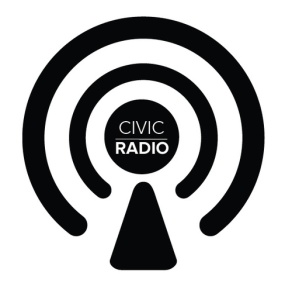“Citizenship is about participating in a thing that is bigger than yourself and in which everyone has an equal stake.” says architect Bryan Boyer.
 In this latest podcast from Civic Radio, Bryan Boyer a US architect who spent some time in the Finnish Innovation Fund in Helsinki, talks to Jo Barratt about re-imagining the libraries in New York and the importance of reconceptualising the civic.
In this latest podcast from Civic Radio, Bryan Boyer a US architect who spent some time in the Finnish Innovation Fund in Helsinki, talks to Jo Barratt about re-imagining the libraries in New York and the importance of reconceptualising the civic.
With a bill for repairs that would top $1bn dollars (more than a universal childcare pledge), a grand library building programme was unlikely to be championed by New York politicians, so Boyer and his team had to find another approach, one that would leverage alternative forms of capital – time, expertise and also the institutional weight of individuals, communities, museums, and non-profit organisations – which could effectively de-risk investment in civic assets. It is, he says, crucial to demonstrate that innovation can bring good results, and at the same time de-risk the innovation (innovation can be scary for politicians), so that local politicians can buy in.
So what role does he see for public institutions? For Boyer they provide ‘continuity and scale’. Pubic institutions are important because, he says, they deal with large numbers of people in equal, fair and consistent ways. However, because of their sheer scale they have often abstracted the detail – it is statiscitcal analysis rather than the experiences and needs of individuals, that drives policy. The big issue is making public instituions more responsive.
A lot of people in the UK are talking about a ‘digital public space’,could this be the answer? According to Boyer it is important (and he commends gov.uk for its friendly interface), but ‘we still need to coexist on the street.’ We have to rethink how the core of an institution works.
So, do civil servants really understand the potential of open data portals? Boyer is clear that top civil servants know that a different approach is needed(but feel constrained by the system), and certainly front line staff at the bottom of the food chain know what is at stake and have the best ideas of what is needed. But there are two problems. Firstly, the tech community is not coming up with the killer apps that will seize the initiative, and secondly the huge number of civil servants in what he calls the ‘Fat Middle’ (a term he used in Helsinki) is so disconnected from the everyday concerns of citizens that they cannot see the need for a new way of working.
How can ‘civic spaces’ (such as schools, parks, post offices and libraries) retain their importance at the heart of the community when they are increasingly facing competition from private providers? The so-called ‘white flight’ from US cities in the 1980s meant a lower tax base for public services, which led to a vicious cycle of decline – the services deteriorated, so few people were then prepared to fight for them, they became sink services.
In part, says Boyes, this is a failure of the conceptualisation of the civic. We need to develop services that people really want to use, and persuade them to participate in those services as citizens but, importantly, it is also about initiating a healthy conversation about funding the civic parts of our lives.
A key recognition is that civic institutions are linked – the swimming pool and the library and the park together give us an understanding of the connectedness of the city as a whole – and of utmost importance is affordable, efficient public transport that enables us to move around the city, and the safety and cleanliness of our streets. Here there is also a role for civic tech – to connect us to what is going on (though as Boyes points out, he doesn’t know of one single place where information on all the events and activities being run by the public authorities can be viewed.)
======================
Photo of Tampa, Florida by John T Howard
This podcast is part of the Civic Radio series of the Civic Shop which is temporarily housed at Somerset House in London.
And you can subscribe to the Tech For Good feed on iTunes – just search in the iTunes store).
Other podcasts in this series can be found here:
- Launch of Civic Radio with writer and urbanist Adam Greenfield
- Social inequality and civic participation featuring Simon Willis, CEO of the Young Foundation
- At the service of the citizen:redefining civic tech conversation with tech activist Laurenellen McCann
- Re-imagining local government with Anna Randle of Lambeth Borough Council, London
- Aral Balkan on being a citizen
- Can public servants change the face of local government? with Dave Seliger, a New York civil servant.
Tags: Cities, Citizenship, Civic Technology, Public libraries, Public Services


Subscribe with…